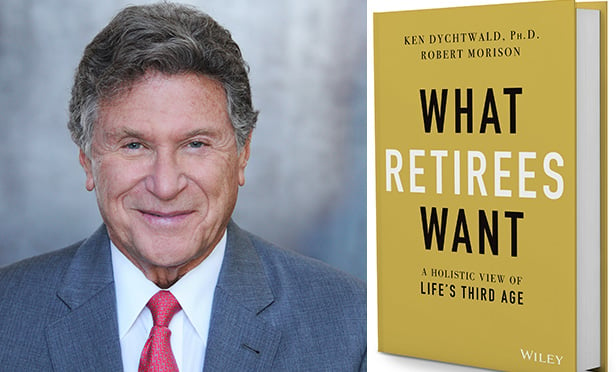 Ken Dychtwald and his new book.
Ken Dychtwald and his new book.
The coronavirus pandemic is a shocking "intervention" whose biggest impact will show up in retirement planning: The crisis has forced older people to consider the importance of matching health span to life span and think about aspiring to a more streamlined lifestyle, argues Ken Dychtwald, founder and CEO of Age Wave.
The "Pitchman for the Graying Revolution," as Fortune Magazine dubbed him, psychologist and gerontologist co-founded Age Wave in 1986 to help companies and government develop strategies to serve the fast-growing aging population.
In the interview, Dychtwald, 70, discusses why only a small portion of retirees — most of them in a quandary over financial planning — have financial advisors.
Continue Reading for Free
Register and gain access to:
- Breaking benefits news and analysis, on-site and via our newsletters and custom alerts
- Educational webcasts, white papers, and ebooks from industry thought leaders
- Critical converage of the property casualty insurance and financial advisory markets on our other ALM sites, PropertyCasualty360 and ThinkAdvisor
Already have an account? Sign In Now
© 2024 ALM Global, LLC, All Rights Reserved. Request academic re-use from www.copyright.com. All other uses, submit a request to [email protected]. For more information visit Asset & Logo Licensing.








